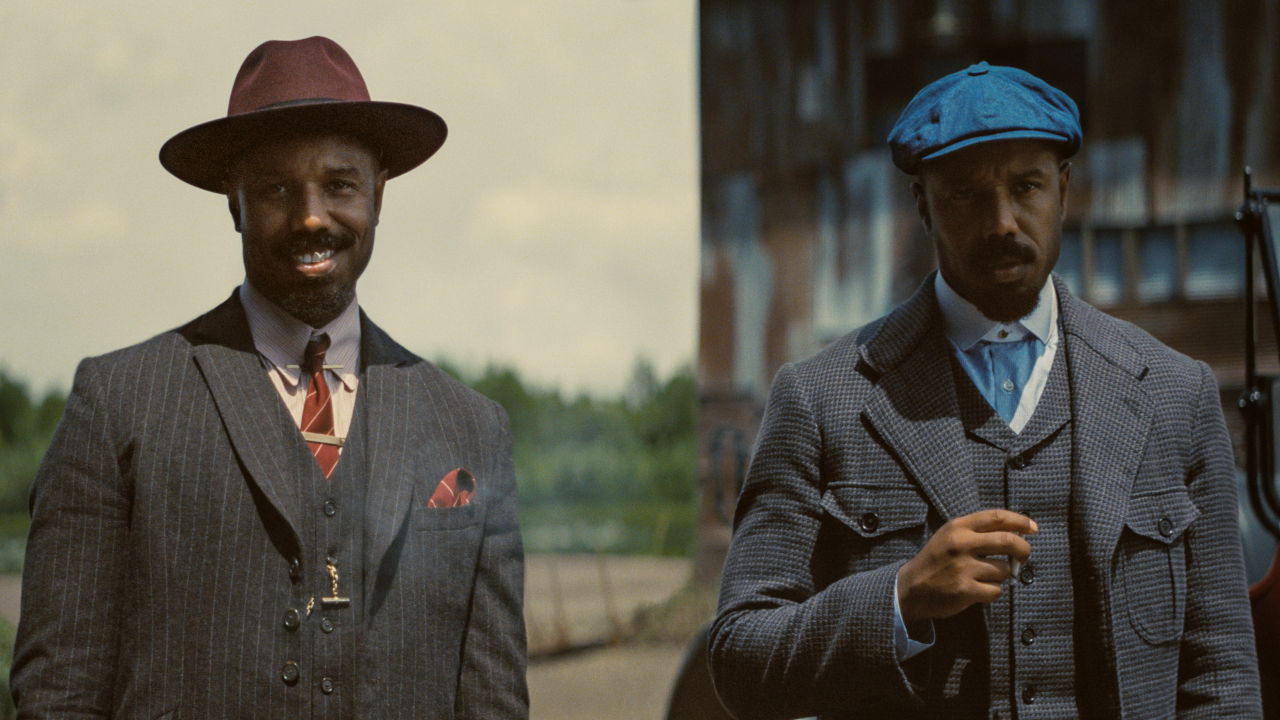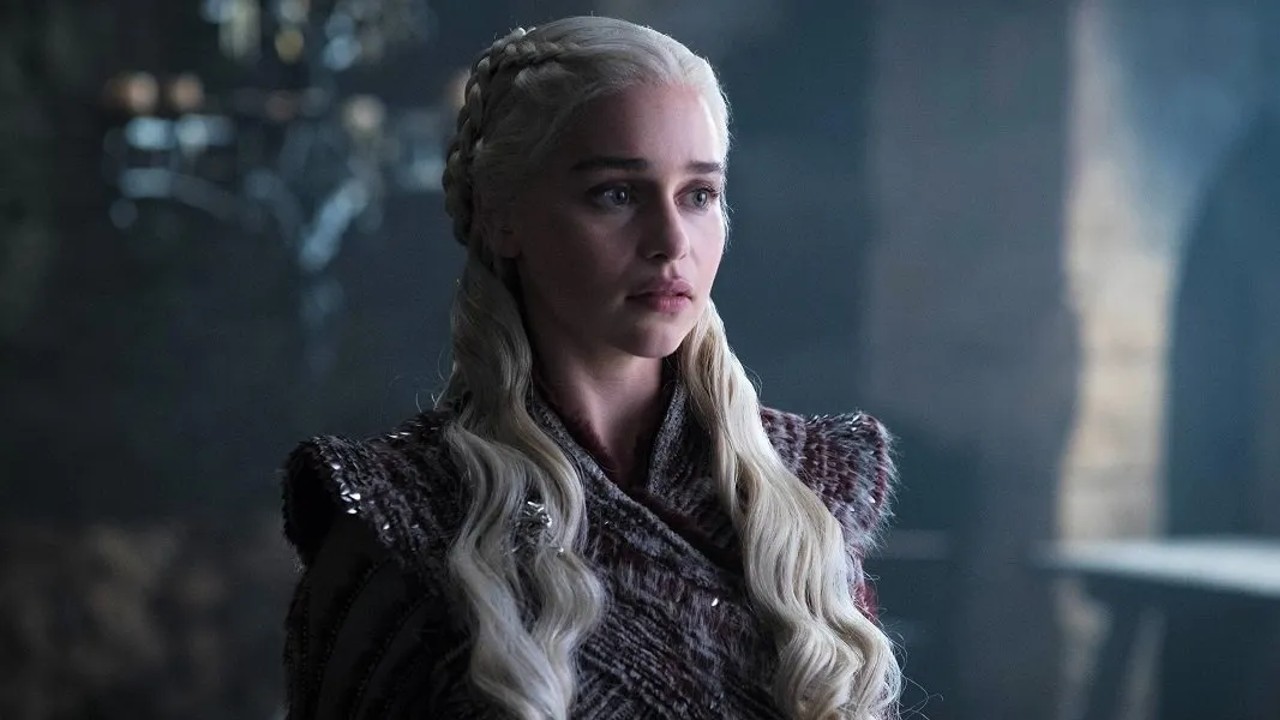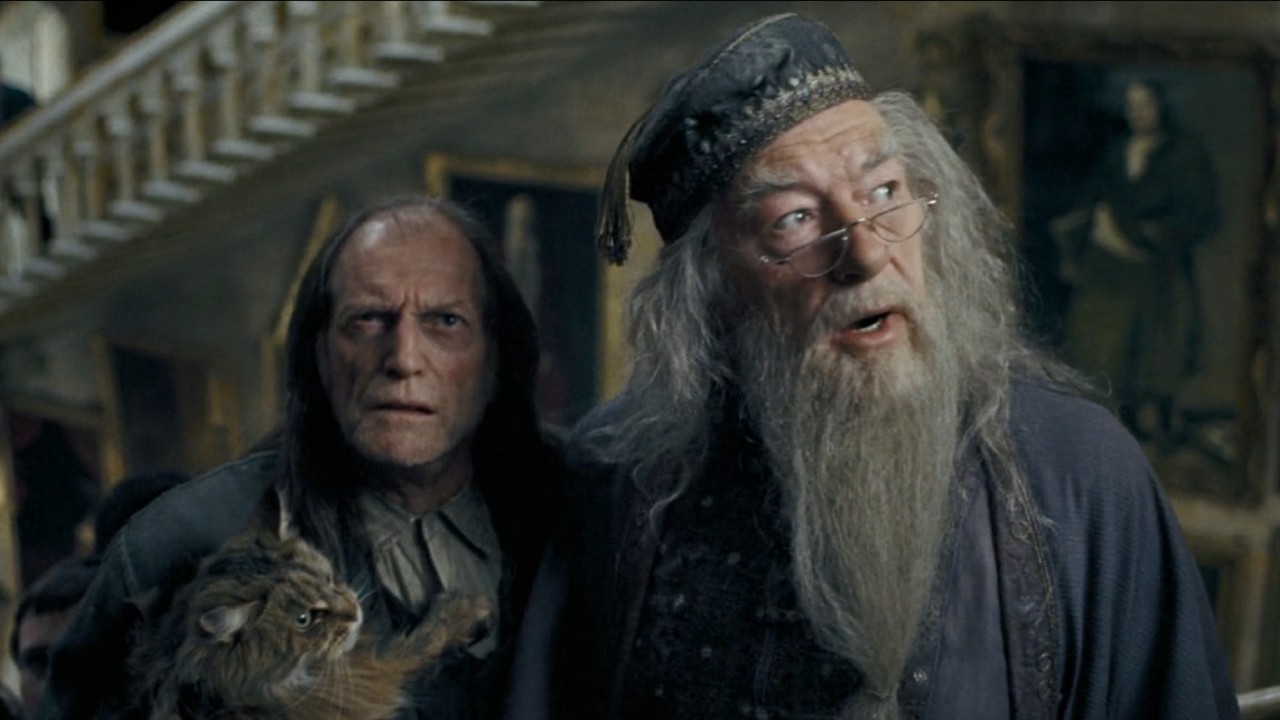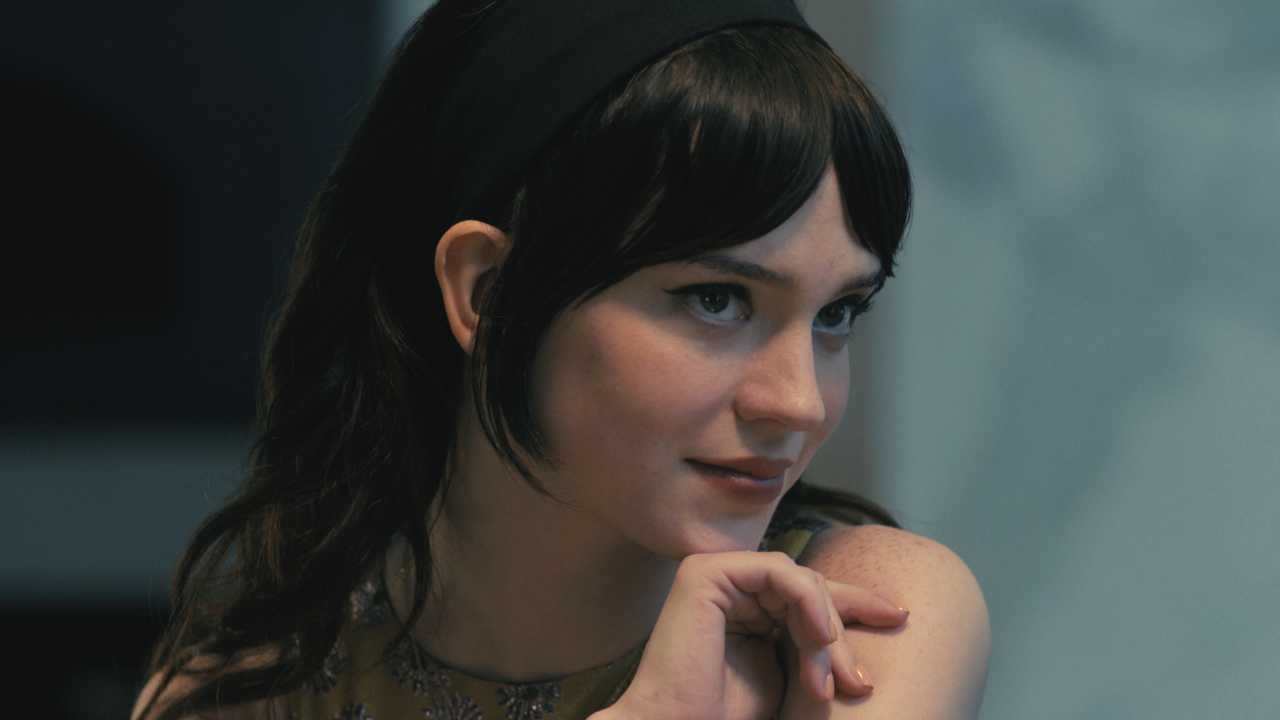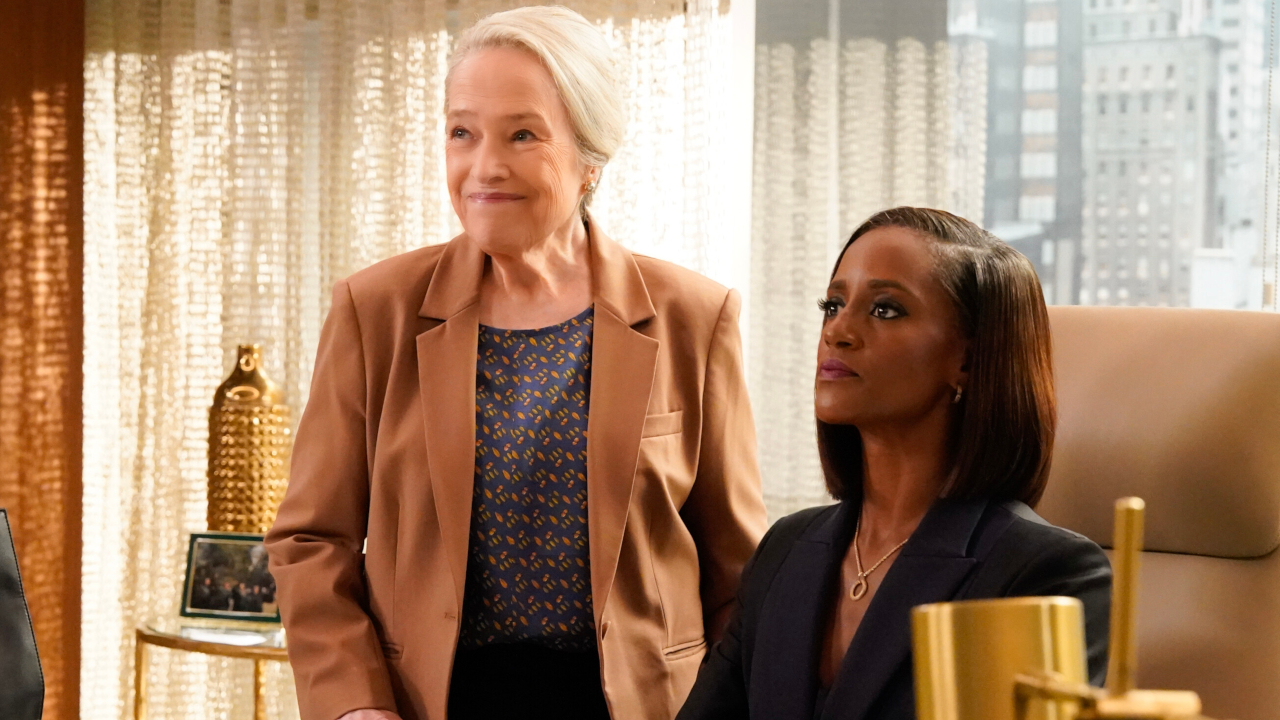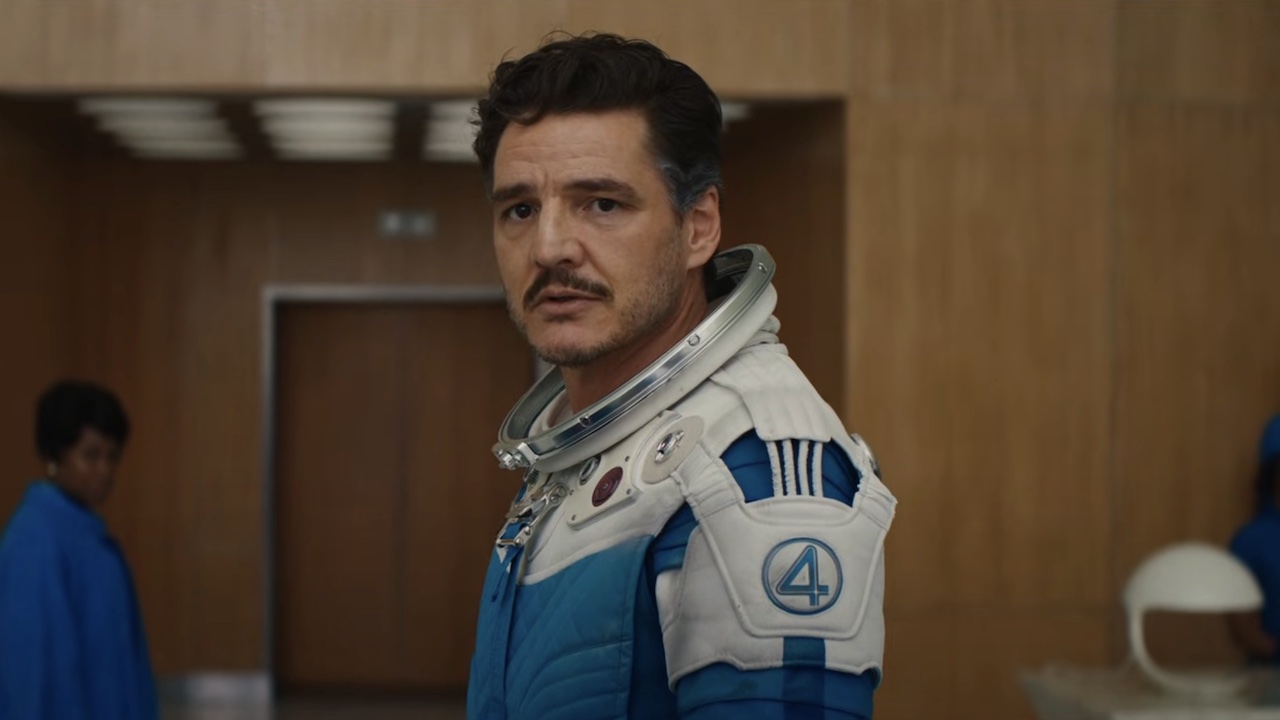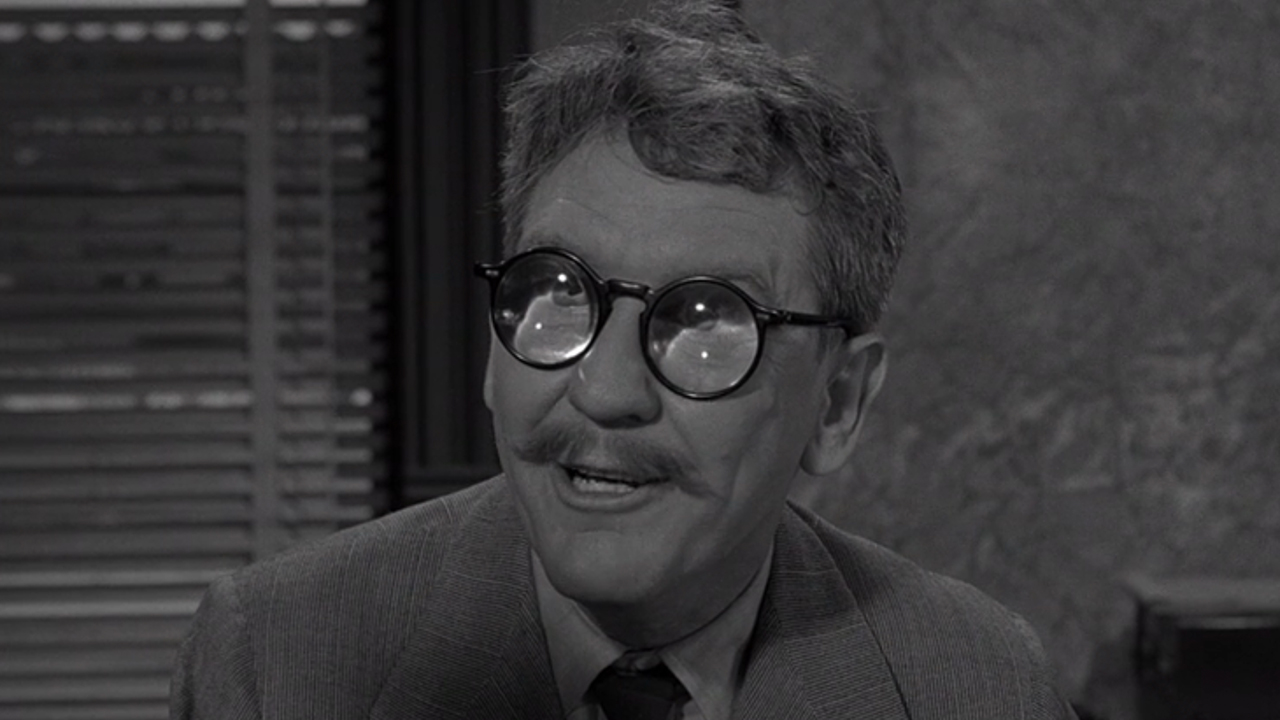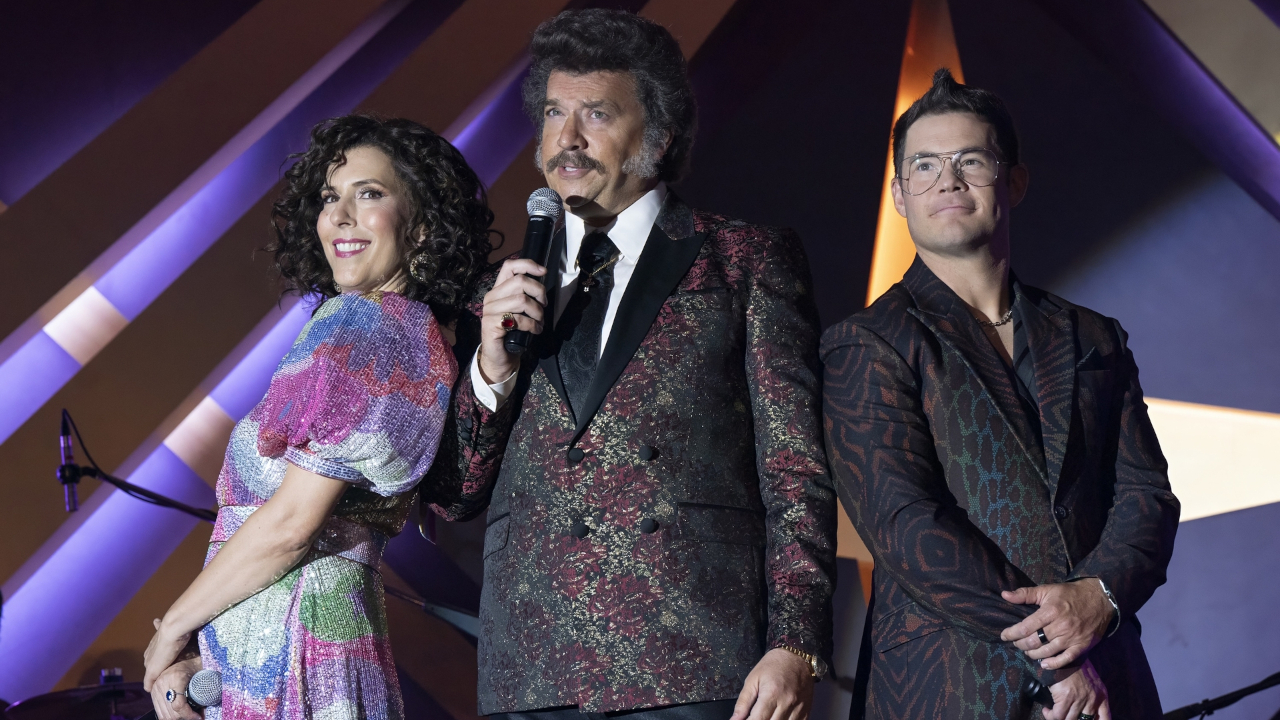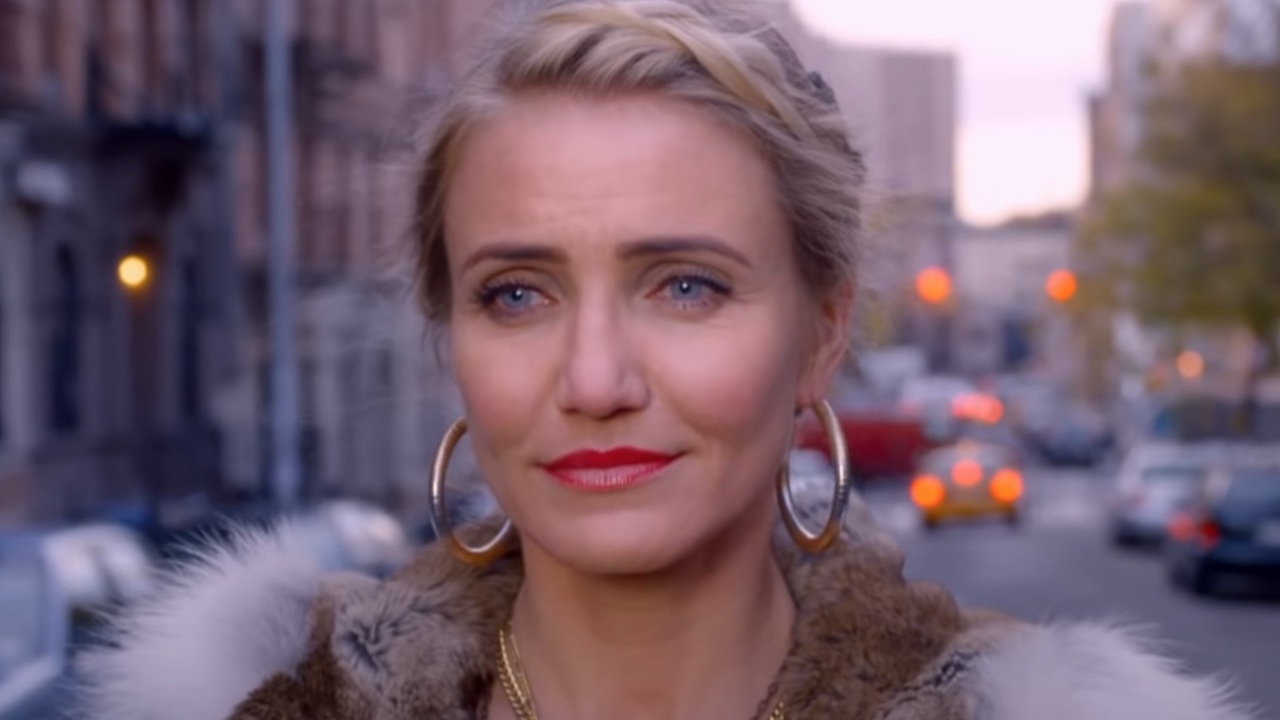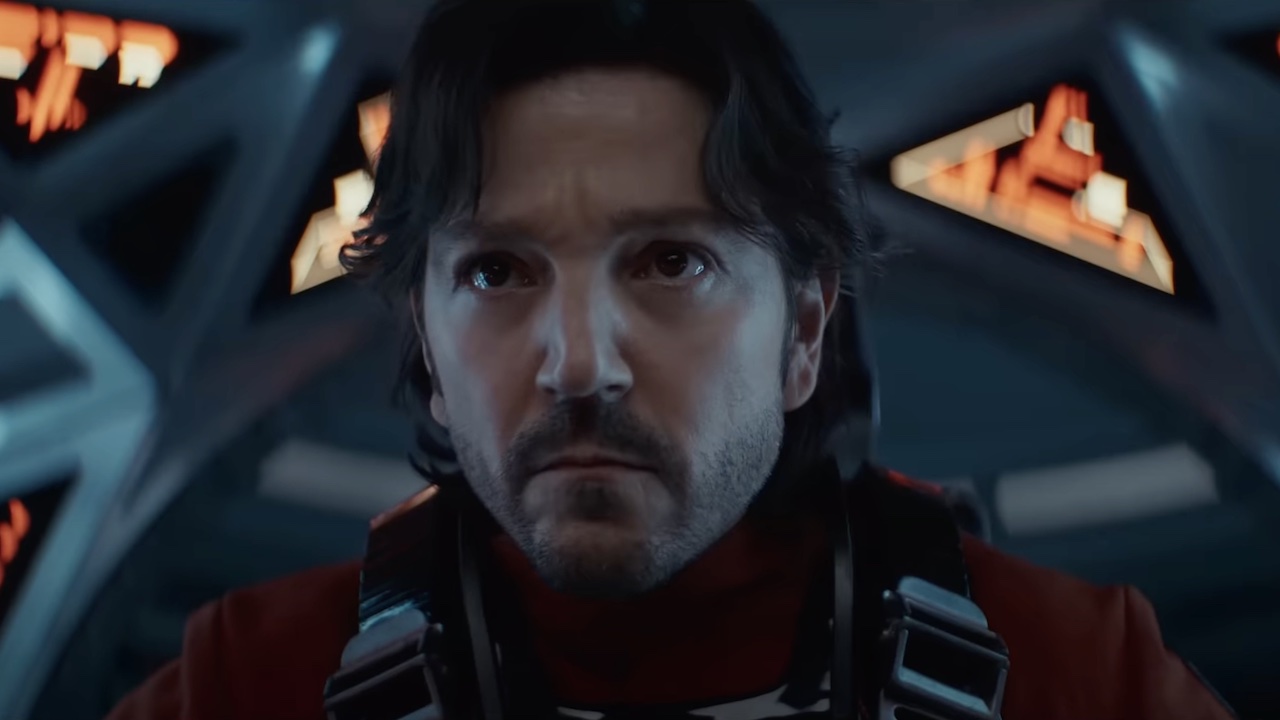5 Reasons Why Pom Poko Is The Best Studio Ghibli Film You Likely Haven't Seen
Studio Ghibli is more than just Miyazaki, you know.
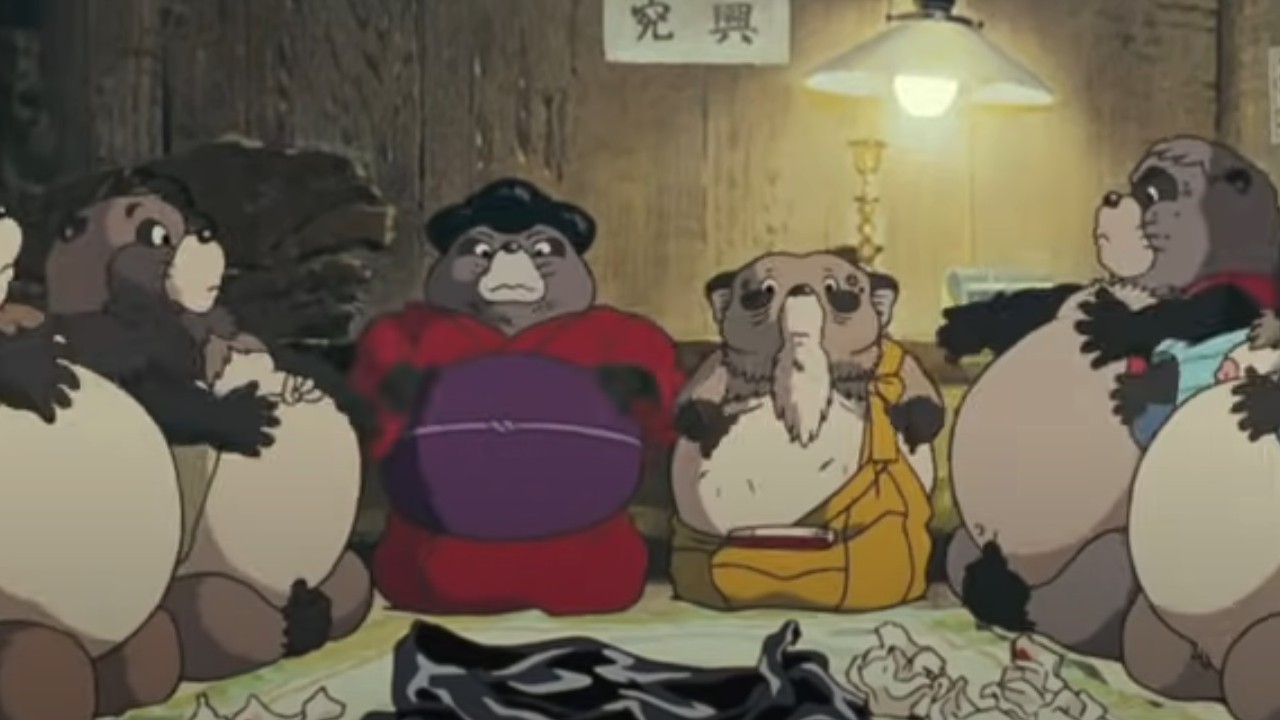
I'm willing to bet that there’s a large swath of Studio Ghibli fans who have never seen a film (besides maybe Grave of the Fireflies) from the studio that didn't read, “Directed by Hayao Miyazaki” at the start of the movie.
And, look. That’s fine. A lot of the most iconic Studio Ghibli movies were helmed by the famed director. In fact, my favorite Studio Ghibli film, Porco Rosso, was directed by Miyazaki.
That said, not every Studio Ghibli film was directed by him. Such is the case with Pom Poko, which was directed by company co-founder Isao Takahata, and might just be the best film from the studio that you likely haven't seen. Here's why it's so good.
Oh, and minor spoilers up ahead.
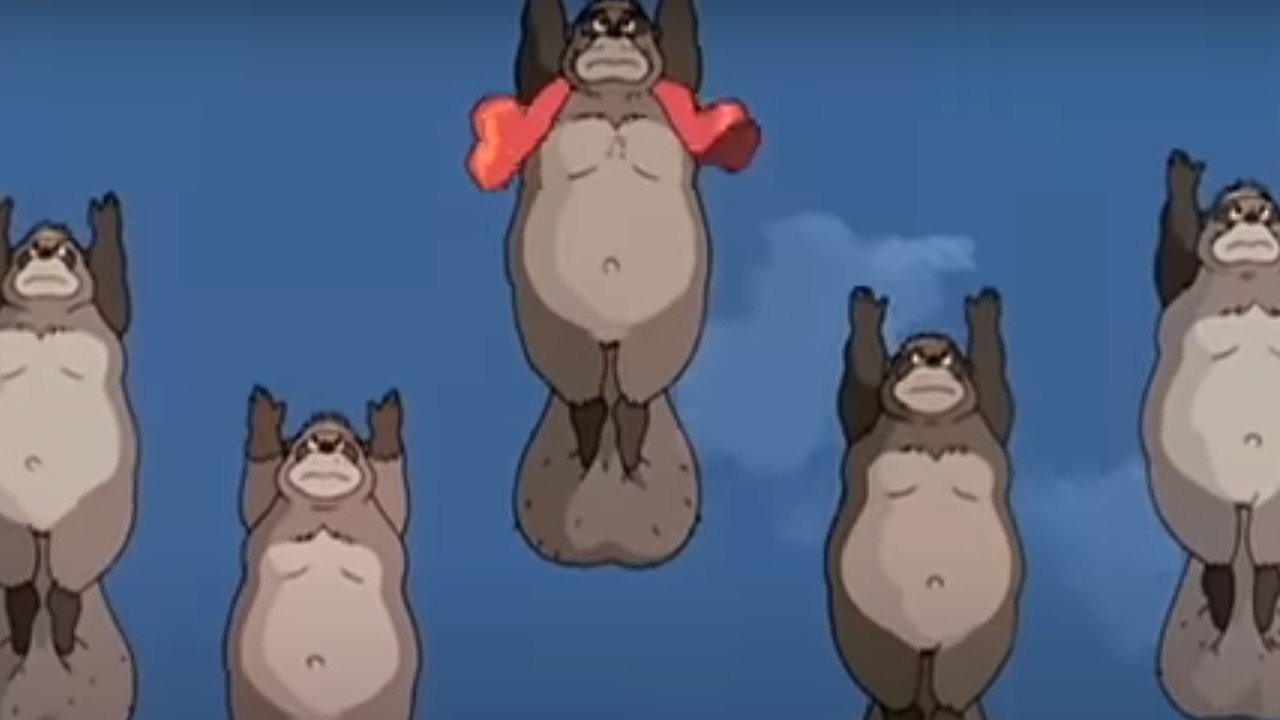
It's Such An Oddball Movie That Feels Unlike Any Of The Miyazaki Studio Ghibli Films
When our very own Alexandra Ramos watched every Miyazaki movie in succession, she kept mentioning how emotionally resonant most of the movies were for her, and yes, that does seem like a hallmark of Miyazaki’s work.
But, I can tell you with certainty that not every Studio Ghibli film tugs at the heartstrings, at least not to the extent that a Miyazaki film might.
For example, The Cat Returns, while humorous, and pretty fun, isn't likely going to make anybody cry (though, it is one of the films that I imagine somebody might mistake for a Disney movie). The same goes for My Neighbors the Yamadas, which is a unique film that is a great departure from something like the lovely The Boy and the Heron, or the masterful, fan-favorite, Spirited Away.
CINEMABLEND NEWSLETTER
Your Daily Blend of Entertainment News
I can definitely say the same about Pom Poko, which may be the most oddball movie in the studio’s entire filmography. The film concerns a colony of Japanese raccoon dogs, and how industrialization is basically destroying their lives.
Yes, I know. With a plot revolving around nature being threatened, it might as well be Princess Mononoke, or Nausicaa of the Valley of the Wind, but with raccoon dogs, right?
Wrong. Or rather, extremely wrong, since this feels like no other Ghibli film ever made. Because, like I said before, it’s such an oddball movie. For example, is there any other Studio Ghibli film where animals use their massive, inflatable testicles to fight off the police? (Yes, I’m dead serious. That happens in this movie.)
Or, what about films where a fox transforms into a businessman, and informs a raccoon dog, which is also disguised as a businessman, that he better tell his friends that they need to change into people…or else?
It’s just such a bizarre film, and I’m surprised that it doesn’t have more of a widespread cult following. It certainly deserves it.
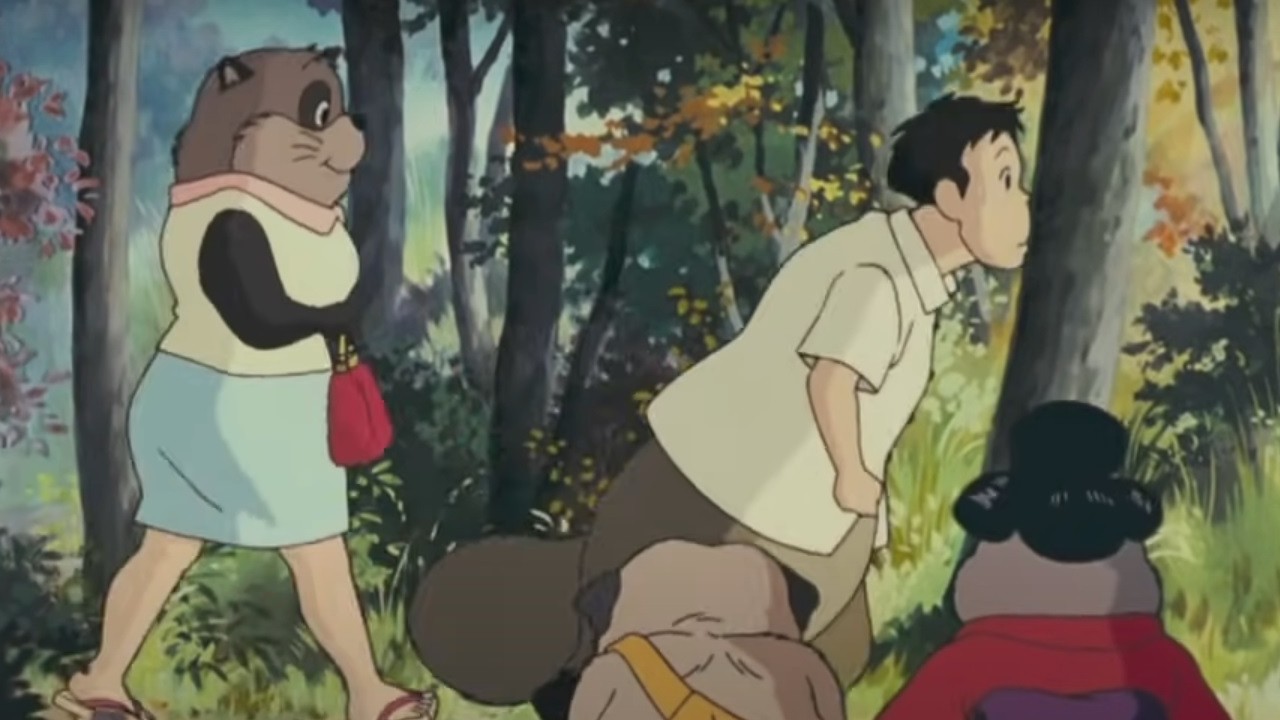
It's Also Deeply Steeped In Japanese Culture. Maybe More So Than Any Other Studio Ghibli Film
I love pretty much every Miyazaki movie, and it’s mostly because even though they are distinctly Japanese films, I feel like they have universal appeal, thematically at least. For example, I can watch a beautiful movie like Howl’s Moving Castle, and can connect with it almost immediately. The same goes for Ponyo, and Kiki’s Delivery Service. It’s movies like these that are beloved around the world.
However, Pom Poko is like SUPER Japanese. For example, the whole concept of shape shifting raccoon dogs (or, tanuki) is based on Japanese folklore. Known as bake-danuki, the legend goes that raccoon dogs are mischievous creatures that can transform into other things (or even people) at will.
When I watched this, it suddenly hit me. Back when I was a kid, I used to play Super Mario Bros. 3, and one of Mario’s new costumes at the time was the tanooki suit. With it, Mario could grow a raccoon tail, and float.
This was strange, but even stranger was that Mario could also transform into a statue. I never understood this as a kid, but this movie enlightened me, as Mario’s transformation goes back to Japanese folklore, which this movie is chock full of.
For example, there’s a parade scene in the movie with all kinds of Japanese spirits, and then, you have the aforementioned giant testicles, which supposedly represents “good fortune” in Japanese culture. So, yeah. Pom Poko (which is actually onomatopoeia for the sound a tanuki makes when pounding its belly) is unabashedly Japanese, and I definitely love it for that.
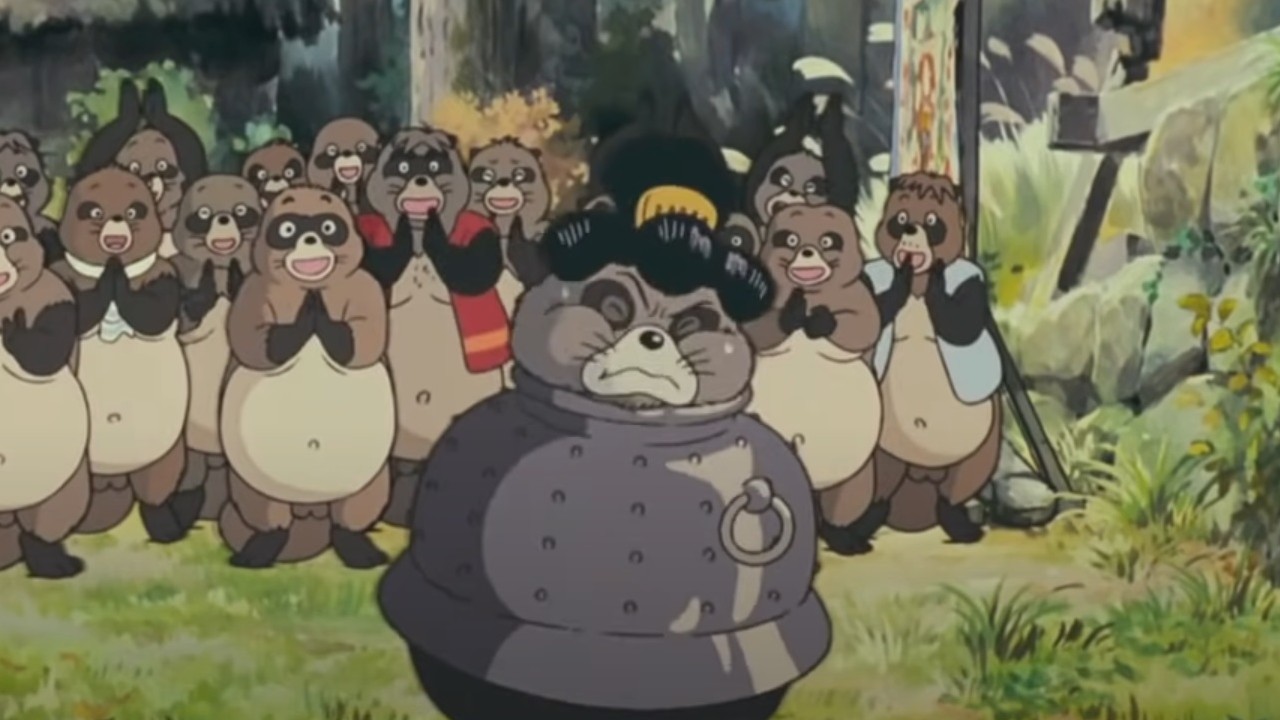
It's The Perfect Mix Of Comedy And Tragedy
This is a very funny movie. The tanuki can at one point look like realistic raccoon dogs, and at other times, look incredibly cartoony. In fact, most everything in this movie (besides the human characters) is exaggerated, and you really have no idea what you’re going to get next.
In short, there’s a lot of humor here. But, it’s also quite tragic. I’ll get more into the environmental concerns it presents soon, but the movie doesn’t exactly end on a happy note.
In fact, as the film goes on, things get more and more drastic for our characters, and it reaches a point where you wonder how things grew to be so dire.
In the most iconic Ghibli movies, you usually have a very consistent tone throughout. But, Pom Poko is really all over the place, shifting from broad comedy one second, to tragedy in the next, which makes it super fascinating.
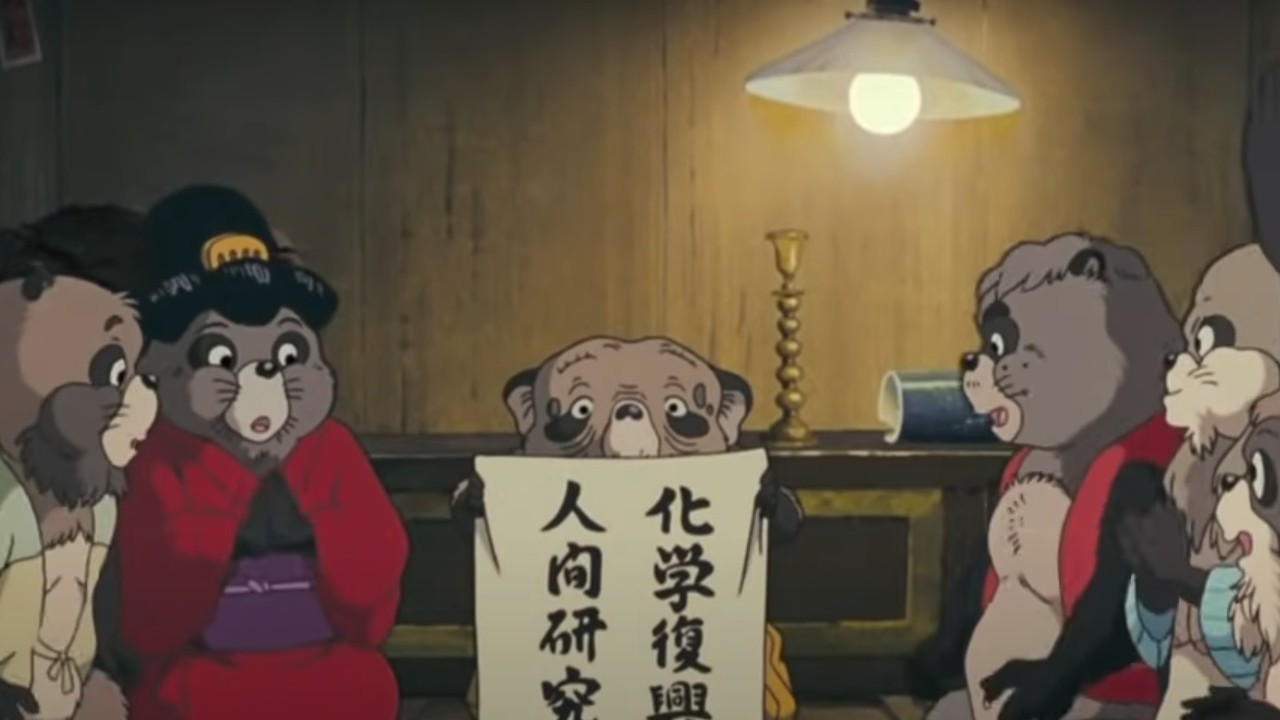
Studio Ghibli's Environmental Concerns Are Probably The Most Prominent In This Movie
Princess Mononoke is probably Studio Ghibli’s angriest movie when it comes to the message of environmental concerns. In it, you get a sense that nature is upset with the way people are treating it, and so it’s lashing out. In this way, it is a very dramatic, action packed movie, and one that is popular for a reason.
However, I think Pom Poko is the more accusatory movie when it comes to the company's messaging about humankind’s effects on nature, and it’s mostly because the victims are more clearcut and obvious here.
The tanuki are losing their home due to deforestation. At first, they try to stop people from knocking down their trees, and even resort to killing people. But, eventually, they realize that it’s futile to try to stop progress, and the ones that can, transform into humans and decide to live out the rest of their lives in secret, living amongst humans and forgetting what it even means to be a raccoon dog.
How depressing is that? It really makes you feel awful by the end, and mostly because you realize that even your mere existence means that other creatures might suffer, which is quite a downer, to be sure.
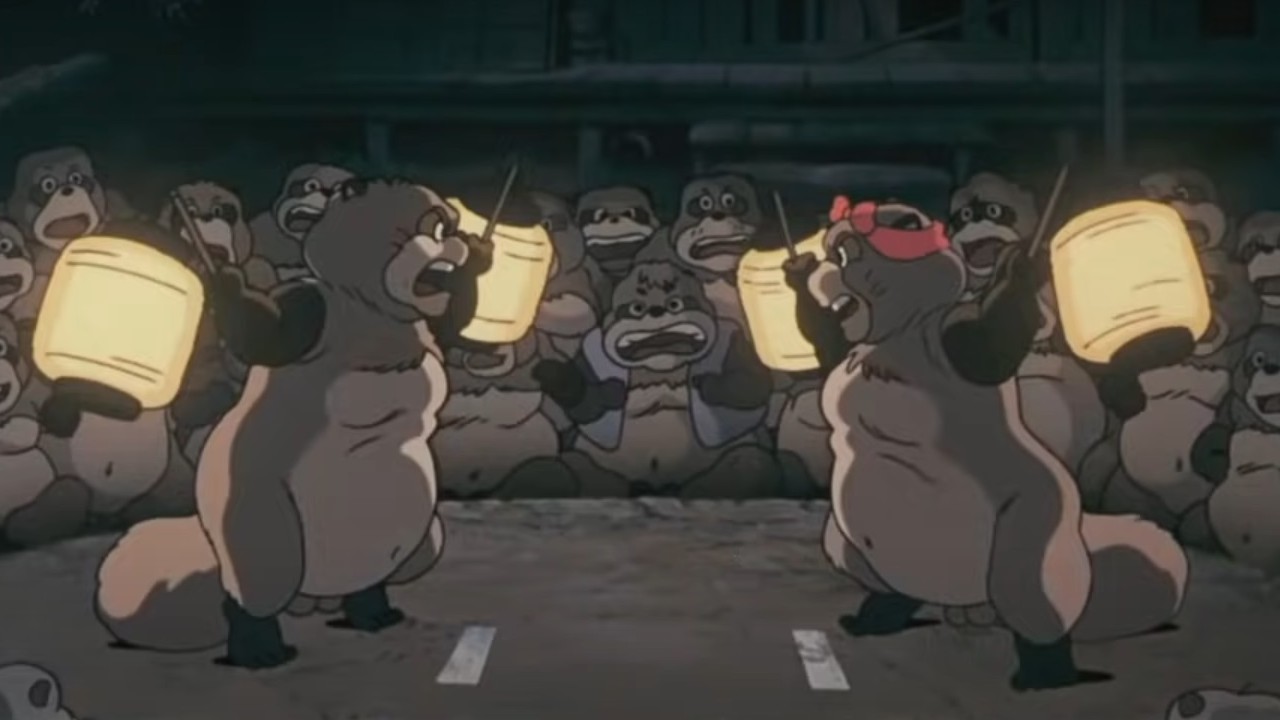
It Has The Greatest Narrator
That was sad, but let’s talk about something happy now, as this movie has probably the greatest narrator ever with Maurice LaMarche.
Now, this is for the American dubbed version, as I didn’t watch the original with Kokontei Shincho narrating the story. So, keep that in mind for all you Pom Poko purists out there, since I don’t know how the original voice actor sounds.
But, to hear the voice of Brain from Pinky and the Brain fame detailing the lives of these whimsical raccoon dogs almost makes the entire movie for me.
Much like Arrested Development and how Ron Howard’s narration pretty much makes that show, I honestly think LaMarche’s easy-going approach to telling this story is one of the highlights, and I couldn’t imagine watching without it.
Have you seen Pom Poko, and if so, how would you rank it when it comes to other Studio Ghibli films?

Rich is a Jersey boy, through and through. He graduated from Rutgers University (Go, R.U.!), and thinks the Garden State is the best state in the country. That said, he’ll take Chicago Deep Dish pizza over a New York slice any day of the week. Don’t hate. When he’s not watching his two kids, he’s usually working on a novel, watching vintage movies, or reading some obscure book.
